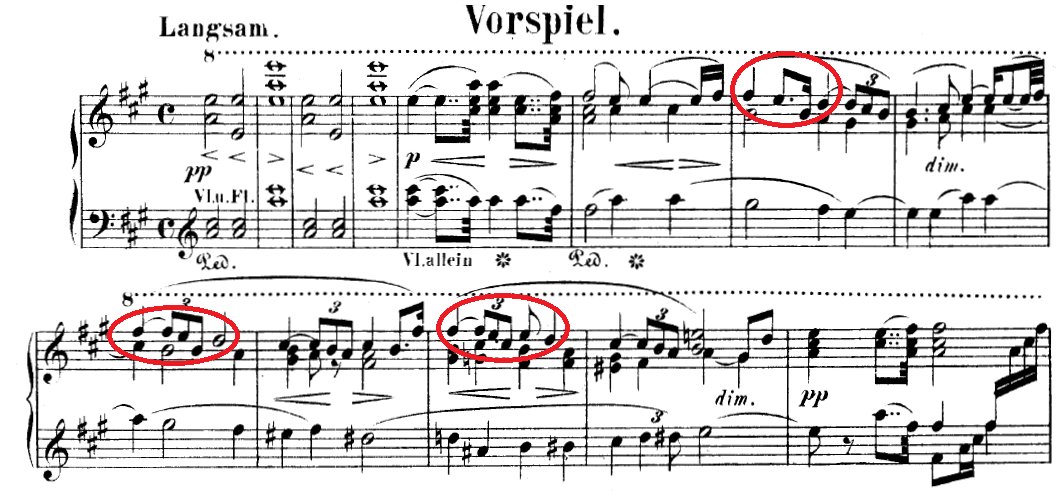
De camino a casa tras el "Anillo del Nibelungo" en Bayreuth, y todavía procesando lo visto estos días, mi primer comentario es que la producción no es ni de lejos lo mala que se intuye tras leer algunas críticas (sobre todo, la crítica demoledora de @Scherzo_es). Sigue hilo ⬇️
El concepto general que propone este anillo me parece muy interesante: Wotan y Alberich son gemelos (algo que, por cierto, se sustenta con el comportamiento mezquino de Wotan durante gran parte del libreto) y la historia habla de una familia acomodada con todo tipo de perfiles
También me gusta (opinión personal) que el anillo no sea un objeto sino un concepto: la niñez y la inocencia. También creo que esto se sustenta en el alto simbolismo del libreto escrito por el propio Wagner.
El alto colorido de la escenografía, unido a una cantidad considerable de escenarios que salen y entran me parece también algo a tener en cuenta. Creo que el @WagnerFestival no ha reparado en gastos en esta producción, y eso se agradece.
En el plano músical: entre los dos ciclos anteriores y este puede haber diferencias, pero la dirección de @corn_iusmeister me ha parecido segura, con control de dinámicas y planos sonoros, incluso mostrando líneas que rara vez se escuchan.
He descubierto leitmotivs ocultos que hasta ahora, en grabaciones en disco, me habían pasado desapercibidas. la orquesta fue mejorando durante el ciclo y tanto "Siegfried" como "Götterdämmerung" fueron una gozada. ¡Bravo!
Las voces tuvieron momentos estelares: el Wotan de @tomkonieczny, con más potencia que en el Teatro Real, la Sigliende de @LiseDavidsen, que ojalá en futuros años haga de Brünnhilde, el Siegfried de @AndreasSchager y también el de Stephen Gould, el Siegmund de @KlausFlorianVog...
Y, muy especialmente, el Alberich de @OlafurSigur, todo un descubrimiento para mí y que dio una interpretación fantástica tanto en lo vocal como en lo escénico. La Brünnhilde de Irene Theorin me pareció buena pero no tanto como la de Daniela Köhler (Siegfried), que me encantó
Hasta aquí, las grandes sorpresas que, tras algunas críticas en las que parecía que Bayreuth se había convertido en un teatro de 3a división, me hicieron disfrutar mucho. Hubo algunos detalles que sí que me parecieron mejorables. Sigue...
En primer lugar, a pesar de la cantidad de escenarios, los momentos más potentes (despedida de Wotan a Brünnhilde al final de "Die Walküre" y escena final de "Götterdämmerung") quedaron deslucidos. Daban para mucho más de lo que el equipo (o el director de escena) decidió hacer
Ejemplo: hay una pirámide pequeñita que va apareciendo en muchos momentos y, al final de La Valquiria, apareció de soslayo una estructura similar en un lateral. Pensamos que ese sería el lugar de "descanso" de Brünnhilde, pero en su lugar pusieron una especie de muro y nada más.
Y eso que, justo antes, Brünnhilde se fue andando hacia el fondo, perdiéndose junto a una bruma que salía del suelo y que, personalmente, me gustó mucho. Pero se pudo rematar mejor, en mí opinión (todo esto es opinión personal, no pretendo pontificar)
Algo parecido puedo decir del final del Ocaso: cuando Brünnhilde cogió un bidón de gasolina pensé que habría incluso fuego real. Pero al final ni fuego, ni luces, ni Valhalla en llamas, ni Brünnhilde inmolándose. ¡De hecho, la despedida es hacia la cabeza de Grane (el caballo)!
También me supo a poco la escenografía del Segundo acto de "Siegfried". Me gustan los simbolismos, pero poner a Fafner de señor mayor paralítico y que Siegfried, cuando lo tira al suelo, parezca que se aliada de él, no se entiende mientras cantan el libreto.
Mi impresión es que se pueden establecer símbolos, analogías o cambios, pero si esto interfiere claramente con el libreto se corre el riesgo de tener que contradecirse en otra escena futura o, peor, de que se corte la lógica del texto
EN RESUMEN: Yo sí estoy contento con haber podido asistir a este "Anillo del Nibelungo" en Bayreuth, y creo que esta producción puede evolucionar muy bien en los próximos años. Así lo deseo, e incluso digo que me encantará hacerme con los DVDs si los sacasen
#Bayreuth #BFRing22
#Bayreuth #BFRing22
PD: Añado algo que a algunos críticos, por algún motivo, se les olvida siempre mencionar: Cornelius Meister estuvo hasta el 14 de julio preparando "Tristán e Isolda". El 15 de julio recibió el encargo (papelón) de sustituir a Pietari Inkinen como director del Anillo en Bayreuth.
En 10 días estuvo listo para el estreno y seguro que este mes de representaciones ha podido perfilar aspectos. Pero me descubro ante el empuje para asumir este tremendo reto. ¡Bravo, @corn_iusmeister!
@threadreaderapp unroll
• • •
Missing some Tweet in this thread? You can try to
force a refresh







